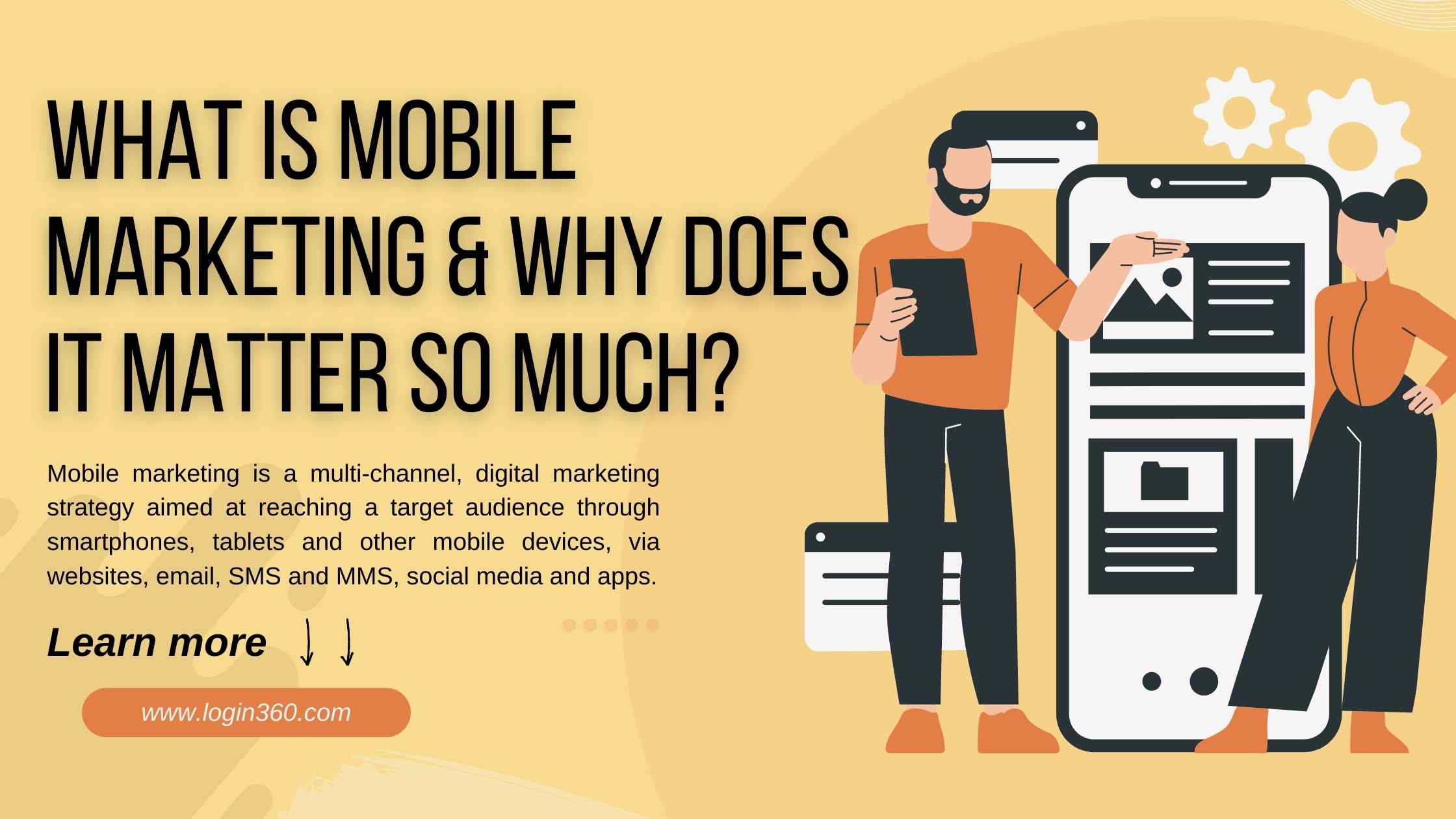
16
AugustWhat Is Mobile Marketing & Why Does it Matter So Much?
What is mobile marketing?
Mobile marketing is a multi-channel, digital marketing strategy that uses websites, emails, SMS and MMS, social media, apps, and other mobile devices to connect with a target audience.
In recent years, customers have begun to concentrate more on and spend more money on mobile. As a result, marketers are following suit in an effort to foster true multichannel interaction.
Marketing also fragments along with technology. Additionally, material needs to be highly individualized and strategically planned in order to capture and hold the interest of potential customers.
How does mobile marketing work?
Strategic, individualised content for mobile marketing requires keeping in mind various gadgets; using SMS/MMS marketing, and utilising mobile apps.
When creating a short- or long-term marketing strategy, mobile marketing is a crucial component.
Every segment of your audience can be reached through a mobile marketing channel and be met where they are most at ease, including:
Email
content marketing
social media marketing
pay-per-click (PPC)
search engine optimization (SEO)
As you seek to acquire, engage, and retain users across a variety of platforms, it can be difficult to create the coherent experience that customers expect for mobile marketing to be effective.
As you try to acquire, engage, and retain users across a variety of platforms, creating a consistent experience that customers anticipate is necessary for mobile marketing to be successful.
Mobile marketing can do wonders for your brand's value and the demand for your products or services by using mobile devices to connect with more customers in real time at any point in the customer lifecycle.
Mobile is also consistently expanding. eMarketer predicts that by 2022, the mobile-only audience in the United States will increase to 55.7 million (almost 19%), and Adweek predicts that 79% of smartphone users have their devices with them for all but two hours a day.
Analysts of UN data have discovered that 66.5% of people worldwide and 71.5% of US residents over the age of 13 own smartphones.
Focusing on establishing a seamless experience that your audience expects is essential if you want to fully leverage the expanding power of mobile marketing.
Components of mobile marketing in digital marketing
Only a small portion of mobile marketing uses text messaging and smartphone apps. You must take responsive, mobile-friendly design into account across your entire marketing strategy to have a seamless experience.
Mobile-friendly information loads quickly, fits on the screen without side-to-side scrolling or zooming, and is error-free.The primary argument for maintaining a mobile-friendly website is the provision of a consistent and engaging user experience (UX). The mobile user experience has a significant impact on every stage of the purchasing cycle.
Marketing messaging using SMS and MMS. SMS (short messaging service) and MMS (multimedia message service) can be used to send content directly to clients, but it's important to use these channels carefully.landing pages and advertising. 43% of emails are opened on mobile platforms, according to Litmus.
Responsive design, a technique that automatically formats webpage content for the best reading on any device, must thus be used in your emails
Additionally, don't overlook landing pages. When a visitor clicks through from your mobile-friendly email to a non-mobile-optimized landing page, they are likely to lose interest and click away.
And don’t forget about landing pages. If your email is mobile friendly, but the clickthrough goes to a landing page that isn’t optimised for mobile, that visitor will likely become frustrated and click away.
Apps With the right strategy and road map, mobile apps can provide an opportunity to drive profound engagement with your customers.
Mobile Marketing vs. Traditional Marketing
Mobile marketing, as opposed to traditional marketing strategies, makes use of the fact that many mobile device users take their gadgets with them everywhere they go.
Because of this, location-based services can gather client information and then provide coupons, discounts, or promotions based on how close they are to a store or another area that the customer frequents.
These marketing strategies can be more individualised and tailored to the particular user, which should increase their effectiveness for the marketing organisation.
One illustration could be a marketing initiative that sends customers vouchers for food whenever they are within a half-mile of a particular supermarket.
Our Takeaway
Despite the fact that mobile marketing has been around for quite some time, research demonstrates that consumers are still receptive to relevant, targeted mobile promotions. By providing what customers anticipate and using the mobile marketing tools and methods mentioned above, you may increase foot traffic to your store.
